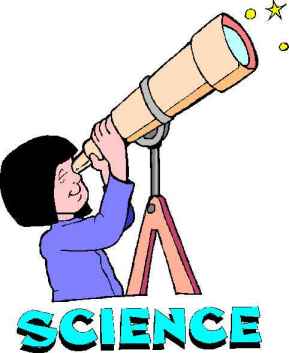Science is simply common sense at its best that is, rigidly accurate in observation, and merciless to fallacy in logic.
(Thomas Henry Huxley)
What is Science?
A cursory look at the history of science can divide it in two periods, modern science and early science, separated by what we call the 'scientific revolution'. What separates the two period is mostly a systemization of the enquiry and its results.
I believe that the invention of the printing press had a huge influence in bringing enlightenment and the modern world. People did not have to go to the knowledge centers anymore to learn, they could let the knowledge come to them in the form of books.

As with most words and all concepts there is not one and only one definition of science. First because the language evolves and so the understandings of the meanings, and second because there are different understandings on the meanings of words and concepts. This second factor is one of the reasons why the language evolves.
|

|
So what is science?
According to Webster, science is "1 :the state of knowing : knowledge as distinguished from ignorance or misunderstanding". This definition misses the mark to understand what is science. The second definition is not much more helpful "2a : a department of systematized knowledge as an object of study". The second part of the definition is slightly more useful "2b : something (as a sport or technique) that may be studied or learned like systematized knowledge". Once we get to the third definition, we narrow down what is science, but it is still not satisfactory "3 :knowledge or a system of knowledge covering general truths or the operation of general laws especially as obtained and tested through scientific method". This definition is the best so far but does not define the scope nor the methods. It can serve as a generic definition.
|
Another definition from the American Heritage Dictionary of the English Language is much closer to what I consider science "The observation, identification, description, experimental investigation, and theoretical explanation of phenomena." Note that this definition is still not perfect, for example, what is a phenomena, also neither classification nor falsifiability are included in that definition.
If it was not enough that words are difficult to define, by their very nature, it becomes even harder when politics is involved. There has been a drive in this country for the past 20 years to redefine the meaning of science. That drive comes from the fight to include creationism in the schools' science curriculums. Many states, mostly behind the scenes, have redefined what is science.
The British Science Council spent a year working on a new definition of science and came up with: "Science is the pursuit of knowledge and understanding of the natural and social world following a systematic methodology based on evidence." I like that definition for its simplicity, but it also fells short as it does not include the body of knowledge already established.
One of the definition of science I like the best was given by Edward O. Wilson in an article in the American Scientist: "Science, to put its warrant as concisely as possible, is the organized systematic enterprise that gathers knowledge about the world and condenses the knowledge into testable laws and principles." The definition then expounds in five points how it works.
The Science of thinking is concerned about the systematic approach to thinking.
Through the ages there has been quite a few philosophers who were also recognized as scientists, here are a few:
- Aristotle
- Hypatia
- Roger Bacon
- Rene Descartes
- Bertrand Russell
- Blaise Pascal
- Alfred North Whitehead
- Gottfried Wilhelm Von Leibnitz
Back
Last modified July 20, 2011

